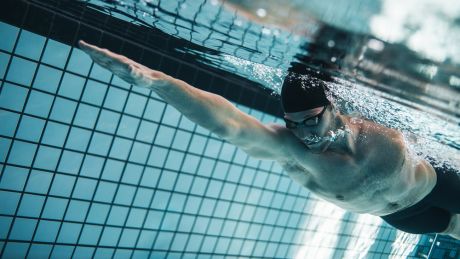How To Get Better At (Almost) Anything
Four tips to help you fine-tune your practice to become a master in your field

Sign up for workout ideas, training advice, reviews of the latest gear and more.
You are now subscribed
Your newsletter sign-up was successful
We’re all born with a gift, says psychologist and performance expert Anders Ericsson – but that gift isn’t for a specific talent like music or sport: rather, it’s an endlessly adaptable brain that can become great at anything with training. And that doesn’t just mean a lot of training, as the “10,000 hours” theory suggests, but the right training. Whatever skill you want to master, here’s what you need to do.
1. Find the right teacher
You’ll advance more quickly when taught by someone who can demonstrate the proper way to perform skills, provide useful feedback and design practice activities to overcome particular weaknesses.
When looking into a teacher’s reputation, skip over reviews about how much fun their lessons are and look for specific descriptions of making progress and overcoming obstacles.
If there are multiple aspects to your subject, recruit multiple teachers – Dan McLaughlin, who gave up a photography career to try to become a pro golfer, started with a golf coach, a strength and conditioning coach and a nutritionist. And if you find you’ve stopped improving, it’s time to look for a new teacher.
2. Engage fully
Natalie Coughlin holds the joint record for most Olympic medals won by a female swimmer – but she didn’t become great in the pool until she learned to engage throughout her practice.
Instead of letting her mind wander, she focused on her technique, trying to make each stroke as close to perfect as possible and figuring out exactly how her body felt during a “perfect” stroke. Once she had a clear idea what that stroke felt like, she knew when she was deviating from it and worked on minimising those deviations.
To improve focus, try shorter training sessions with clearer goals. It’s better to train at 100% effort for less time than at 70% effort for a longer period. And get enough sleep.
Sign up for workout ideas, training advice, reviews of the latest gear and more.
3. Help yourself
When practising, don’t do the same thing over and over again mindlessly: figure out your weaknesses and try different methods to improve until you find something that works.
A student training to be a ringmaster at a circus school in Brazil told me how he learned to keep his audience interested. He went to downtown Rio in rush hour and struck up conversations with commuters. Most were in a hurry, so he had to use his voice and body language to hold their attention. He was deliberate, timing how long he kept each conversation going and noting which techniques worked.
Use the three Fs: Focus. Feedback. Fix it. This is purposeful practice.
4. Maintain motivation
Getting started is easy. It’s exciting, it’s energising – but when you don’t improve as fast as you hoped, your resolve weakens. It’s why gyms that were crowded in January are only half-full in July.
One effective way to maintain motivation is to set aside a fixed time to practise that’s cleared of all other obligations and distractions. When I studied violin students in Berlin I found most preferred to practise as soon as they got up – they set up their schedules so there was nothing else to do at that time.
Minimise the influence of anything that might interfere with your training. If you get distracted by your smartphone, turn it off – and preferably leave it in another room. If you’re not a morning person, move your exercise session to later in the day when your body won’t fight you.
Peak: How All of Us Can Achieve Extraordinary Things by Anders Ericsson (co-written with Robert Pool) is out now, RRP £9.99 (Vintage), buy on amazon.co.uk
Coach is a health and fitness title. This byline is used for posting sponsored content, book extracts and the like. It is also used as a placeholder for articles published a long time ago when the original author is unclear. You can find out more about this publication and find the contact details of the editorial team on the About Us page.

